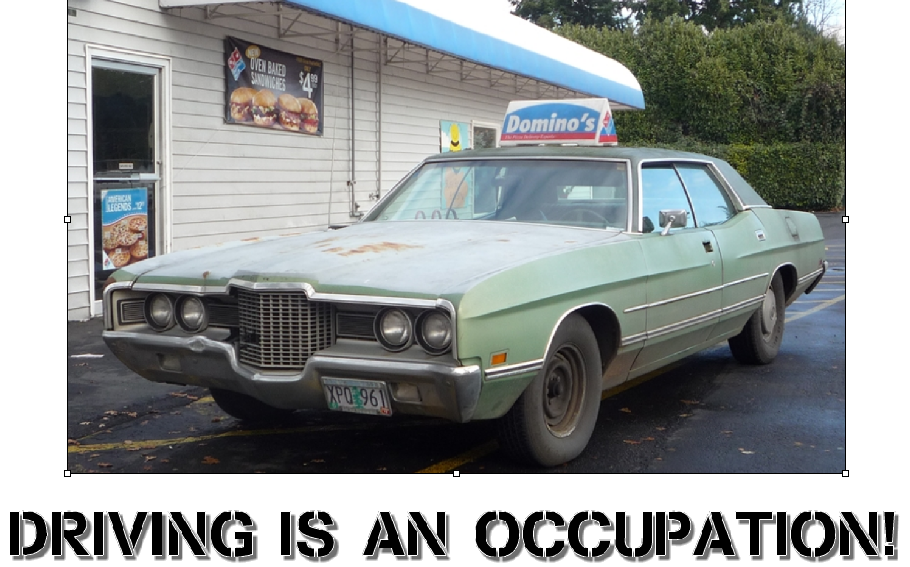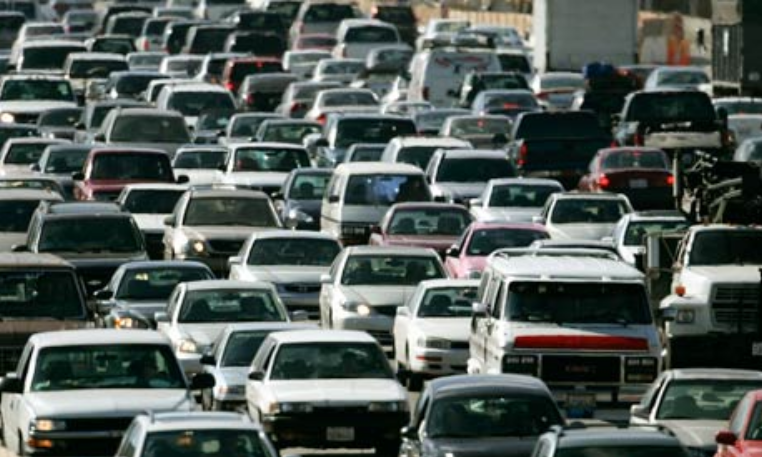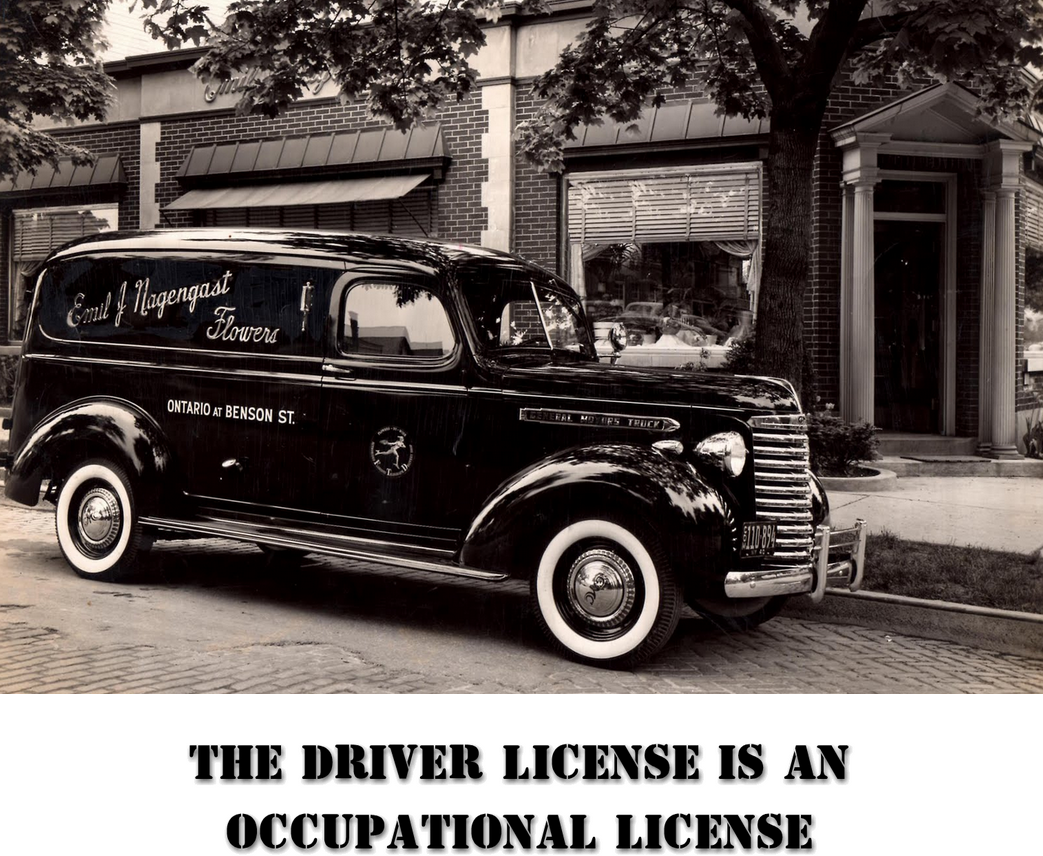
CALIFORNIA PUBLIC UTILITIES CODE
208. "Transportation of persons" includes every
service in
connection with or incidental to the safety, comfort, or convenience of
the person transported and the receipt, carriage, and delivery of such
person and his baggage.
209.
"Transportation of property" includes every service in
connection with or incidental to the transportation of property,
including in particular its receipt, delivery, elevation, transfer,
switching, carriage, ventilation, refrigeration, icing, dunnage,
storage, and handling, and the transmission of credit by express
corporations.
211.
"Common carrier" means every person and corporation providing
transportation for compensation to or for the public or any portion
thereof, except as otherwise provided in this part.
"Common carrier"
includes:
(a) Every railroad corporation; street railroad
corporation; dispatch, sleeping car, dining car, drawing-room car,
freight, freightline, refrigerator, oil, stock, fruit, car-loaning,
car-renting, car-loading, and every other car corporation or person
operating for compensation within this state.
(b) Every corporation or person, owning,
controlling,
operating, or managing any vessel used in the transportation of persons
or property for compensation between points upon the inland waters of
this state or upon the high seas between points within this state,
except as provided in Section 212. "Inland waters" as used in
this section includes all navigable waters within this state other than
the high seas.
(c) Every
"passenger stage corporation" operating within this state.
214.5. With respect to a motor vehicle used in
the transportation
of passengers for compensation by a passenger stage corporation,
"owner" means the corporation or person who is registered with the
Department of Motor Vehicles as the owner of the vehicle, or who has a
legal right to possession of the vehicle pursuant to a lease or rental
agreement.
CALIFORNIA PUBLIC
UTILITIES CODE
DIVISION 2.
REGULATION OF RELATED BUSINESSES BY THE PUBLIC UTILITIES COMMISSION
CHAPTER 1.
INTERSTATE AND FOREIGN MOTOR CARRIERS OF HOUSEHOLD
GOODS AND PASSENGERS ACT
Article 1.
General Provisions
3950.
It is a violation of law for any person or corporation to
operate, or cause to be operated, on the highways of this state, any
motor vehicle in the transportation of property or passengers for
compensation in interstate commerce without having first complied with
the requirements of this chapter. That violation may be
prosecuted and punished as provided in Section 16560 of the Vehicle
Code.
CALIFORNIA PUBLIC
UTILITIES CODE
4000. This chapter may be cited as the Private
Carriers of Passengers Registration Act.
4001. (a) For
purposes of this chapter, "private carrier" means a
not-for-hire motor carrier, as defined in Section 408 of the Vehicle
Code, who transports passengers and is required to obtain a carrier
identification number pursuant to Section 34507.5 of the Vehicle Code,
but does not include persons providing transportation services
specified in subdivision (k) or (l) of Section 5353.
(b)
For purposes of this chapter, "department" means the Department of the
California Highway Patrol.
CALIFORNIA PUBLIC
UTILITIES CODE
5101. This chapter may be cited as the
"Household Goods Carriers Act."
5102.
The use of the public highways for the transportation of
used household goods and personal effects for compensation is a
business affected with a public interest. It is the
purpose
of this chapter to preserve for the public the full benefit and use of
public highways consistent with the needs of commerce without
unnecessary congestion or wear and tear upon such highways;
to
secure to the people just, reasonable and nondiscriminatory rates for
transportation by carriers operating upon the highways; and
to
secure full and unrestricted flow of traffic by motor carriers over the
highways which will adequately meet reasonable public demands by
providing for the regulation of rates of all carriers so that adequate
and dependable service by all necessary carriers shall be maintained
and the full use of the highways preserved to the public.
5108.
"Motor vehicle" means every motor truck, tractor, or other
self-propelled vehicle used for transportation of property over the
public highways, otherwise than upon fixed rails or tracks, and any
trailer, semitrailer, dolly, or other vehicle drawn thereby.
5109. "Household goods carrier" includes every
corporation or
person, their lessees, trustee, receivers or trustees appointed by any
court whatsoever, engaged in the transportation for compensation or
hire as a business by means of a motor vehicle or motor vehicles being
used in the transportation of used household goods and personal effects
over any public highway in this state.
5110.5.
With respect to a motor vehicle used in the
transportation of property for compensation by a household goods
carrier, "owner" means the corporation or person who is
registered with the Department of Motor Vehicles as the owner of the
vehicle, or who has
a legal right to possession of the
vehicle pursuant to a lease or rental agreement.
5112.
The regulation of the transportation of used household
goods and personal effects in a motor vehicle or motor vehicles over
any public highway in this state shall be exclusively as provided in
this chapter. Any provision of the Public Utilities
Act in
conflict with the provisions of this chapter does not apply to a
household goods carrier.
5352.
The use of the public highways for the transportation of
passengers for compensation is a business affected with a public
interest. It is the purpose of this chapter to
preserve for
the public full benefit and use of public highways consistent with the
needs of commerce without unnecessary congestion or wear and tear upon
the highways; to secure to the people adequate and dependable
transportation by carriers operating upon the highways; to secure full
and unrestricted flow of traffic by motor carriers over the highways
which will adequately meet reasonable public demands by providing for
the regulation of all transportation agencies with respect to accident
indemnity so that adequate and dependable service by all necessary
transportation agencies shall be maintained and the full use of the
highways preserved to the public; and to promote carrier and public
safety through its safety enforcement regulations.
5353.
This chapter does not apply to any of the following:
(a) Transportation service rendered wholly within
the
corporate limits of a single city or city and county and licensed or
regulated by ordinance.
(b)
Transportation of school pupils conducted by or under contract with the
governing board of any school district entered into pursuant to the
Education Code.
(c) Common carrier
transportation services between fixed termini or over a regular route
which are subject to authorization pursuant to Article 2 (commencing
with Section 1031) of Chapter 5 of Part 1 of Division 1.
(d) Transportation services occasionally afforded
for farm
employees moving to and from farms on which employed when the
transportation is performed by the employer in an owned or leased
vehicle, or by a nonprofit agricultural cooperative association
organized and acting within the scope of its powers under Chapter 1
(commencing with Section 54001) of Division 20 of the Food and
Agricultural Code, and without any requirement for the payment of
compensation therefor by the employees.
(e) Transportation
service rendered by a publicly owned transit system.
(f) Passenger
vehicles carrying passengers on a noncommercial enterprise basis.
(g) Taxicab transportation service licensed and
regulated
by a city or county, by ordinance or resolution, rendered in vehicles
designed for carrying not more than eight persons excluding the driver.
(h) Transportation of persons between home and
work
locations or of persons having a common work-related trip purpose in a
vehicle having a seating capacity of 15 passengers or less, including
the driver, which are used for the purpose of ridesharing, as defined
in Section 522 of the Vehicle Code, when the ridesharing is incidental
to another purpose of the driver. This exemption also applies
to
a vehicle having a seating capacity of more than 15 passengers if the
driver files with the commission evidence of liability insurance
protection in the same amount and in the same manner as required for a
passenger stage corporation, and the vehicle undergoes and passes an
annual safety inspection by the Department of the California
Highway Patrol. The insurance filing shall be
accompanied
by a one-time filing fee of seventy-five dollars ($75). This exemption
does not apply if the primary purpose for the transportation of those
persons is to make a profit. "Profit," as used in this
subdivision, does not include the recovery of the actual costs incurred
in owning and operating a vanpool vehicle, as defined in Section 668 of
the Vehicle Code.
(i) Medical
transportation vehicles, including vehicles employed to transport
developmentally disabled persons for regional centers established
pursuant to Chapter 5 (commencing with Section 4620) of Division 4.5 of
the Welfare and Institutions Code.
(j) Transportation services rendered solely within the Lake Tahoe
Basin, comprising that area included within the Tahoe Regional Planning
Compact as set forth in Section 66801 of the Government Code, when the
operator of the services has obtained any permit required from the
Tahoe Basin Transportation Authority or the City of South Lake Tahoe,
or both.
(k) Subject to Section
34507.6 of the Vehicle
Code, transportation service provided by the operator of an automobile
rental business in vehicles owned or leased by that operator, without
charge other than as may be included in the automobile rental charges,
to carry its customers to or from its office or facility where rental
vehicles are furnished or returned after the rental period.
(l) Subject to Section 34507.6 of the Vehicle
Code,
transportation service provided by the operator of a hotel, motel, or
other place of temporary lodging in vehicles owned or leased by that
operator, without charge other than as may be included in the charges
for lodging, between the lodging facility and an air, rail, water, or
bus passenger terminal or between the lodging facility and any place of
entertainment or commercial attraction, including, but not limited to,
facilities providing snow skiing. Nothing in this subdivision
authorizes the operator of a hotel, motel, or other place of temporary
lodging to provide any round-trip sightseeing service without a permit,
as required by subdivision (c) of Section 5384.
(m) (1) Transportation of hot air balloon ride
passengers
in a balloon chase vehicle from the balloon landing site back to the
original take-off site, provided that the balloon ride was conducted by
a balloonist who meets all of the following conditions:
(A) Does not fly
more than a total of 30 passenger rides for compensation annually.
(B) Does not
provide any preflight ground transportation services in their vehicles.
(C) In providing return transportation to the
launch site
from landing does not drive more than 300 miles annually.
(D) Files with the commission an exemption
declaration and
proof of vehicle insurance, as prescribed by the commission, certifying
that the operator qualifies for the exemption and will maintain minimum
insurance on each vehicle of one hundred thousand dollars ($100,000)
for injury or death of one person, three hundred thousand dollars
($300,000) for injury or death of two or more persons and one hundred
thousand dollars ($100,000) for damage to property.
(2) Nothing in this subdivision authorizes the
operator of
a commercial balloon operation to provide any round-trip sightseeing
service without a permit, as required by subdivision (c) of Section
5384.
(n) (1)
Transportation
services incidental to operation of a youth camp that are provided by
either a nonprofit organization that qualifies for tax exemption under
Section 501(c)(3) of the Internal Revenue Code or an organization that
operates an organized camp, as defined in Section 18897 of the Health
and Safety Code, serving youth 18 years of age or younger.
(2) Any transportation service described in
paragraph (1)
shall comply with all of the following requirements:
(A) Register as a
private carrier with the commission pursuant to Section 4005.
(B) Participate in a pull notice system for
employers of
drivers as prescribed in Section 1808.1 of the Vehicle Code.
(C) Ensure compliance with the annual bus terminal
inspection required by subdivision (c) of Section 34501 of the Vehicle
Code.
(D) Obtain the
following
minimum amounts of general liability insurance coverage for vehicles
that are used to transport youth:
(i) A minimum of five hundred thousand dollars ($500,000) general
liability insurance coverage for passenger vehicles designed to carry
up to eight passengers. For organized camps, as defined in
Section 18897 of the Health and Safety Code, an additional two hundred
fifty thousand dollars ($250,000) general umbrella policy that covers
vehicles.
(ii) A minimum of
one
million dollars ($1,000,000) general liability insurance
coverage
for vehicles designed to carry up to 15 passengers. For
organized
camps, as defined in Section 18897 of the Health and Safety Code, an
additional five hundred thousand dollars ($500,000) general umbrella
policy that covers vehicles.
(iii) A
minimum of one million five hundred thousand dollars ($1,500,000)
general liability insurance coverage for vehicles designed to carry
more than 15 passengers, and an additional three million five hundred
thousand dollars ($3,500,000) general umbrella liability insurance
policy that covers vehicles.
24505.
"Transit" means the transportation of passengers and their incidental
baggage by any means.
99209.5.
"Operates" for purposes of Sections 99209 and 99215, and
"operation" for purposes of paragraph (1) of subdivision (b) of
Section 99289, mean that the operator owns or leases the equipment,
establishes routes and frequency of service, regulates and collects
fares, and otherwise controls the efficiency and quality of the
operation of the system, but does not require that operators of rolling
stock be employees of a public agency.
99210.
"Operator" means any transit district, included transit
district, municipal operator, included municipal operator, or transit
development board.
100012.
"Transit" means the transportation of passengers and
their incidental baggage by any means, and includes rapid transit.
161000.
(a) The Legislature finds and declares as follows:
(1) Transportation is vital to the state's
economy, and a
complete transportation system is essential in times of disaster.
(2) Transportation corridors should be protected
from uses
which are incompatible with transportation requirements.
(3) Important potential transportation corridors
are being developed for other purposes.
(b) It
is, therefore, the intent of the Legislature in
enacting this division to vest in the Department of Transportation
responsibility for implementing a program of transportation
right-of-way protection and conservation within essential
transportation corridors by acquiring and holding transportation
corridor lands which would otherwise be lost to public use.
(c) It is
the further intent of the Legislature in
enacting this division to preserve land which is needed or will be
needed for transportation corridors consistent with applicable
environmental protection laws and regulations.

STATUTES OF CALIFORNIA 1955
Chapter 1905
9603. "Operator"
includes:
(a)
Any person engaging in the transportation of persons or property for
hire or compensation by or upon a motor vehicle upon any public highway
in this State, either directly or indirectly.
(b) Any person
who for compensation furnishes any motor vehicle for the
transportation of persons or property under a lease or rental agreement
when such person operates the motor vehicle furnished or exercises any
control of, or assumes. any responsibility for the operation of the
vehicle irrespective of whether the vehicle is driven by such person or
the person to whom the vehicle is furnished, or engages either in whole
or in part in, the transportation of persons or property in the motor
vehicle furnished.
"Operator"
does not include any of the following:
(a)
Any person transporting his own property in a motor vehicle owned or
operated by him unless he makes a specific charge for the
transportation.
(f) Any registered owner of a pleasure vehicle
who, while operating the vehicle, transports persons to his work or to
a place through which he passes on the way to his work, whether for or
without compensation, if he is not in the business of furnishing such
transportation.
Stats. 1955, ch. 1905, p. 3515 - 3516.
WORDS
ABANDONMENT.
The surrender, relinquishment, disclaimer, or cession of property or of
rights.
Deviation
from route, Loper v. Morrison, 145 P.2d 4, 23 Cal.2d 600;
truck driver
unnecessarily permitting passenger to drive, Ginther v. J. P. Graham
Transfer Co., 33 A. 2d 923, 924, 348 Pa. 60. Contra where truck driver
remained on driver's seat, directing operation of truck, and watched
passenger's driving, Ginther v. J. P. Graham Transfer Co., 27 A.2d 712,
714, 149 Pa.Super. 635; and where truck driver became sick,
Matzek v. United Storage & Trucking Co., 186 A. 193, 122
Pa.Super.
146. Truck drivers becoming intoxicated and
remaining from
work,
Naylon v. State, Ct.C1., 40 N.Y.S.2d 587, 590; Coal miner
contrary to orders, riding on an empty car, Soroka v. Philadelphia
& Reading Coal & Iron Co., 138 Pa.Super. 296, 10
A.2d.904,
907. But automobile driver's choosing longer route
by paved
highways to pick up a needed change of clothing at home did not
constitute an "abandonment" of his employment. Mitchell v. Mitchell
Drilling Co., 154 Kan. 117, 114 P.2d 841, 844.
Black’s Law Dictionary,
4th Ed. 1951, p. 9 & 11
AUTO LIVERY SERVICE.
The business of furnishing for hire an automobile with a chauffeur,
the
car to be driven where the hirer directs. The term
is also applied to the business of leasing
driverless
cars. See Collette v. Page, 44 R.I. 26, 114 A. 136, 18 A.L.R.
74. See Automobile; Drive it Yourself Cars.
AUTO STAGE.
A motor vehicle used for the purpose of carrying passengers, baggage, or
freight
on a regular schedule of time and rates. State v. Ferry Line
Auto Bus Co., 99 Wash. 64,
168
P. 893, 894. See Automobile.
AUTOMOBILE.
A vehicle for the transportation of persons or property on the highway,
carrying its own motive power and not operated upon fixed
tracks.
Blashfield's Cyclopedia of
Automobile Law, vol. 1, c. 1, § 2.
Etymologically,
the term might include any self-propelled vehicle, as an electric
street car, or a motor boat, but in popular and legal usage it is
confined to a vehicle for the transportation of persons or property on
terrestrial highways, carrying its own motive power and not operated
upon
fixed tracks. Bethlehem Motors Corporation v.
Flynt, 178
N.C. 399, 100 S.E. 693, 694. Synonymous with "motor vehicle." State v.
Ferry Line Auto Bus Co., 99 Wash. 64, 168 P. 893,
894.
"Car" as substitute or synonym. Monroe's Adm'r v. Federal Union Life
Ins. Co., 251 Ky. 570, 65 S.W.2d 680, 681. Taxicabs
included. Navy Gas & Supply Co. v. Schoech, 105 Colo. 374, 98
P.2d
860, 864, 126 A.L.R. 1225. Trolley vehicles or
trolley
busses excluded. City of Dayton v. Lie Brosse, 62 Ohio St. 232, 23
N.E.2d 647, 650.
Black’s Law Dictionary,
4th Ed. 1951, p. 169 - 170
BACK-SEAT DRIVER.
A highly nervous passenger whether sitting in rear or by driver, who by
unwarranted advice and warnings interferes in careful operation of
automobile. Winters v. York Motor Express Co., 116 Pa.Super. 421, 176
A. 812, 815.
Black’s Law Dictionary,
4th Ed. 1951, p. 175
BOB-TAIL
DRIVER. A person collecting and
delivering laundry without
being subject to complete control of employer. Ring v. City Dry
Cleaners, Fla., 152 Fla. 622, 12 So.2d 593, 594.
Black’s Law Dictionary,
4th Ed. 1951, p. 220
CAR'RIER, n. [See
Carry.] One who carries; that which carries or
conveys ; also a messenger.
2.
One who is employed to carry goods for others for a reward; also, one
whose occupation
is
to carry goods for others, called a common carrier; a porter-
Webster’s Dictionary,
1828 (no page numbers provided in original)
CARRY:
Carrying trade, the trade which consists in the transportation of goods
by water from
country
to country, or place to place.
Webster’s Dictionary,
1828 (no page numbers provided in original)
CARRIERS,
contracts. There are two kinds of carriers, namely,
common
carriers, (q.v.) who have been considered under another head; and
private carriers. These latter are persons who,
although
they do not undertake to transport the goods of such as choose to
employ them, yet agree to carry the goods of some particular person for
hire, from one place to another.
2. In such case
the carrier incurs no responsibility beyond that of any other ordinary
bailee for hire, that is to say, the responsibility of ordinary
diligence. 2 Bos. & Pull. 417; 4 Taunt. 787; Selw. N. P. 382
n.; 1
Wend. R. 272; 1 Hayw. R. 14; 2 Dana, R. 430; 6 Taunt. 577; Jones,
Bailm. 121; Story on Bailm, Sec. 495. But in Gordon v. Hutchinson, 1
Watts & Serg.
285,
it was holden that a Wagoner Who carries
goods for hire, contracts, the responsibility of a common carrier,
whether transportation be his principal and direct business, or only an
occasional and incidental employment.
3. To bring
a person within the description of a common carrier, he must exercise
his business as a public employment; he must undertake to carry goods
for persons generally; and he must hold himself out as ready to engage
in the transportation of goods for hire, as a business; not as a casual
occupation pro hac vice. 1 Salk. 249; 1 Bell's Com. 467; 1 Hayw. R.
14;
1 Wend. 272; 2, Dana, R. 430. See Bouv. Inst. Index, b. t.
Bouvier’s Law Dictionary,
1856, p. 14
COMMON
CARRIER, contracts. One who undertakes
for hire or reward
to transport the goods of any who may choose to employ him, from place
to place. 1 Pick. 50, 53; 1 Salk. 249, 250; Story, Bailm. Sec. 495 1
Bouv. Inst. n. 1020.
2. Common carriers are
generally of two descriptions, namely, carriers by land and carriers by
water. Of the former description are the
proprietors of
stage coaches, stage wagons or expresses, which ply between different
places, and' carry goods for hire; and truckmen, teamsters, cartmen,
and porters, who undertake to carry goods for hire, as a common
employment, from one part of a town or city to another, are also
considered as common carriers. Carriers by water
are the
masters and owners of ships and steamboats engaged in the
transportation of goods for persons generally, for hire and lightermen,
hoymen, barge-owners, ferrymen, canal boatmen, and others employed in
like manner, are so considered.
3. By the
common law, a common carrier is generally liable for all losses which
may occur to property entrusted to his charge in the course of
business, unless he can prove the loss happened in consequence of the
act of God, or of the enemies of the United States, or by the act of
the owner of the property. 8 S. & R. 533; 6 John. R. 160; 11
John.
R. 107; 4 N. H. Rep.
304;
Harp. R. 469; Peck. R. 270; 7 Yerg. R. 340; 3 Munf. R. 239; 1 Conn. R.
487; 1 Dev. & Bat. 273; 2 Bail. Rep. 157.
4. It was attempted to relax the rigor of the common law in
relation to carriers by water, in 6 Cowen, 266; but that case seems to
be at variance with other decisions. 2 Kent,. Com. 471, 472; 10 Johns.
1; 11 Johns. 107.
5.
In respect to carriers by land, the rule of the common law seems every
where admitted in its full rigor in the states governed by the
jurisprudence of the common law. Louisiana follows the doctrine of the
civil law in her code. Proprietors of stage coaches
or
wagons, whose employment is solely to carry passengers, as hackney
coachmen, are not deemed common carriers; but if the
proprietors
of such vehicles for passengers, also carry goods for hire, they
are, in respect of such goods, to be deemed common carriers. Bac. Ab.
Carriers, A; 2 Show. Rep. 128 1 Salk. 282 Com. Rep. 25; 1
Pick.
50 5 Rawle, 1 79. The like reasoning applies to
packet
ships and steam-boats, which ply between different ports, and are
accustomed to carry merchandise as well as passengers. 2 Watts. R. 443;
5 Day's Rep. 415; 1 Conn.
R. 54; 4 Greenl. R. 411; 5 Yerg. R. 427; 4
Har. & J. 291; 2 Verm. R. 92; 2 Binn. Rep. 74; 1 Bay, Rep. 99;
10
John. R. 1; 11 Pick. R. 41; 8 Stew. and Port. 135; 4 Stew. &
Port.
382; 3 Misso. R. 264; 2 Nott. & M. 88. But see 6 Cowen, R.
266. The rule which makes a common carrier
responsible for
the loss of goods, does not extend to the carriage of
persons; a
carrier of slaves is, therefore, answerable only for want of care and
skill. 2 Pet. S. C. R. 150. 4 M'Cord, R. 223; 4 Port. R. 238.
6. A common carrier of goods is in all cases entitled to
demand
the price of carriage before he receives the goods, and, if not paid,
he may refuse to take charge of them; if, however, he take
charge
of them without the hire being paid, he may afterwards recover it. The
compensation which becomes due for the carriage of goods by sea, is
commonly called freight (q.v.); and see also, Abb. on Sh. part 3, c.
7. The carrier is also entitled to a lien on the
goods for
his hire, which, however, he may waive; but if once waived, the right
cannot be resumed. 2 Kent, Com. 497. The consignor
or
shipper is commonly bound to the carrier for the hire or freight of
goods. 1 T. R. 659. But whenever the consignee
engages to
pay it, he also becomes responsible. It is usual in bills of lading to
state, that the goods are to be delivered to the consignee or to his
assigns, he or they paying freight, in which case the consignee and his
assigns, by accepting the goods, impliedly become bound to pay the
freight, and the fact that the consignor is also liable to pay it, will
not, in such case, make any difference. Abbott on Sh. part 3, o. 7,
Sec. 4.
7. What is said above, relates to
common carriers of goods. The duties, liabilities,
and
rights of carriers of passengers, are now to be
considered.
These are divided into carriers of passengers on land, and carriers of
passengers on water.
8. First, of carriers
of passengers on land. The duties of such carriers
are,
1st. those which arise on the commencement of the
journey.
1. To carry passengers whenever they offer themselves and are
ready to pay for their transportation. They have no
more
right to refuse a passenger, if they have sufficient room and
accommodation, than an innkeeper has to refuse a
guest.
3 Brod.
& Bing. 54; 9 Price's R. 408; 6 Moore, R. 141; 2 Chit. R. 1; 4
Esp.
R. 460; 1 Bell's Com. 462; Story, Bailm. Sec. 591.
9. - 2. To provide coaches reasonably strong and sufficient
for
the journey, with suitable horses, trappings and equipments.
10. - 3. To provide careful drivers of reasonable skill and.
good
habits for the journey; and to employ horses which are steady and not
vicious, or likely to endanger the safety of the passengers.
11. - 4. Not to overload the coach either with passengers or
luggage.
12. - 5. To receive and take care of the usual luggage
allowed to
every passenger on the journey. 6 Hill, N. Y. Rep. 586.
13. - 2d. Their duties on the progress of the journey. 1. To
stop
at the usual places, and allow the..Usual intervals for the refreshment
of the passengers. 5 Petersd. Ab. Carriers, p. 48, note.
14. - 2. To use all the ordinary precautions for the safety
of passengers on the road.
15. - 3d. Their duties on the termination of the journey. 1.
To
carry the passengers to the end of the journey.
16. - 2. To put them down at the usual place of stopping,
unless
there has been a special contract to the contrary, and then to put them
down at the place agreed upon. 1 Esp. R. 27.
17. The liabilities of such carriers.
They are bound
to use extraordinary care and diligence to carry safely those whom they
take in their coaches. 2 Esp. R. 533; 2 Camp. R. 79; Peake's R. 80.
But, not being insurers, they are not responsible for accidents, when
all reasonable skill and diligence have been used.
18. The rights of such carriers. 1. To
demand and
receive their fare at the time the passenger takes his
seat. 2. They have a lien on the baggage of the
passenger
for his fare or passage money, but not on the person of the passenger
nor the clothes he has on. Abb. on Sh. part 3, c. 3, Sec. 11; 2 Campb.
R. 631.
19. Second, carriers of passengers
by water. By the act of Congress of 2d March, 1819,
3
Story's Laws U. S. 1722, it is enacted, 1. that no master of a vessel
bound to or from the United States shall take more than two passengers
for every five tons of the ship's custom-house
measurement.
2. That the quantity of water and provisions, which shall be
taken on board and secured under deck, by every Ship bound from the
United States to any port on the continent of Europe, shall be sixty
gallons of water, one hundred pounds of salted provisions, one gallon
of vinegar, and one hundred pounds of wholesome ship bread for each
passenger, besides the stores of the crew. The
tonnage here
mentioned, is the measurement of the custom-house; and in
estimating the number of passengers in a vessel, no deduction is to be
made for children or persons not paying, but the crew is not to be
included.
Gilp.
R. 334.
20. The act of
Congress of February 22, 1847, section 1, provides: "That if
the
master of any vessel, owned in whole or in part by a citizen of the
United States of America, or by a citizen of any foreign country, shall
take on board such vessel, at any foreign port or place, a greater
number of passengers than in the following proportion to the space
occupied by them and appropriated for their use, and unoccupied by
stores or other goods, not being the personal luggage of such
passengers, that is to say, on the lower deck or platform one passenger
for every fourteen clear superficial feet of deck, if such vessel is
not to pass within the tropics during such voyage; but if
such
vessel is to pass within the tropics during such voyage, then one
passenger for every twenty such clear superficial feet of deck, and on
the
orlop deck (if any) one passenger for every thirty such superficial
feet in all cases, with intent to bring such passengers to the United
States of America, and shall leave such port or, place with the same,
and bring the same, or any number thereof, within the jurisdiction of
the United States aforesaid, or if any such master of a vessel shall
take on board of his vessel at any port or place within the
jurisdiction of the United States aforesaid, any greater number of
passengers than the proportions aforesaid admit, with intent to carry
the same to any foreign port or place, every such master shall be
deemed guilty of a misdemeanor, and, upon conviction thereof before any
circuit or district court of the United States aforesaid, shall, for
each passenger taken on board beyond the above proportions, be fined in
the sum of fifty dollars, and may also be imprisoned for any term not
exceeding one year: Provided, That this act shall not be
construed to permit any ship or vessel to carry more than two
passengers to five tons of such ship or vessel."
21. Children under one year of age not to be computed in
counting
the passengers, and those over one year and under eight, are to be
counted as two children for one passenger, Sect. 4. But this section is
repealed so far as authorizes shippers to estimate two children of
eight years of age and under as one passenger by the act of March 2,
1847, s. 2.
22. In New York, statutory
regulations have been made in relation to their canal navigation. Vide
6 Cowen's R. 698. As to the conduct of carrier
vessels on
the ocean, Vide Story, Bailm. Sec. 607 et seq; Marsh. Ins. B.
1,
c. 12, s. 2. And see, generally, 1 Vin. Ab. 219; Bac. Ab. h.t.; 1 Com.
Dig. 423; Petersd. Ab. h.t.; Dane's Ab. Index,
h.t.; 2
Kent, Com. 464; 16 East, 247, note; Bouv. Inst. Index, h.t.
23. In Louisiana carriers and watermen are subject, with
respect
to the safe-keeping and preservation of the things entrusted to them,
to the same obligations and duties, as are imposed on tavern keepers;
Civ. Code, art. 2722; that is, they are responsible for the
effects which are brought, though they were not delivered into their
personal care; provided, however, they were delivered to a servant or
person in their employment; art. 2937. They are
responsible
if any of the effects be stolen or damaged, either by their servants or
agents, or even by strangers; art. 2938; but they are not responsible
for what is stolen by force of arms or with exterior breaking open of
doors, or by any other extraordinary violence; art.
2939. For the authorities on the subject of Common
carriers
in the civil law, the reader is referred to Dig. 4, 9, 1 to
7;
Poth. Pand. lib. 4, t. 9; Domat liv. 1, t. 16, S. 1 and 2;
Pard.
art. 537 to 555; Code Civil, art. 1782, 1786, 1952; Moreau &
Carlton, Partidas 5, t. 8, 1. 26; Ersk. Inst. B. 2, t. 1, Sec.
28; 1 Bell's Com. 465; Abb. on Sh. part 3, c. 3, Sec. 3, note
(1); 1 Voet, ad Pand. lib. 4, t. 9; Merl. Rep. mots Voiture,
Voiturier; Dict. de Police, Voiture.
Bouvier’s Law Dictionary,
1856, p. 89 - 93
COMMON
CARRIERS. A common carrier is one
whose regular business or
calling it is to carry chattels for all persons who may choose to
employ and remunerate him. Schouler. BaUm. 297.
Everyone who offers to the public to carry persons, property or
messages, excepting
only
telegraphic messages, is a common carrier or whatever he thus offers to
carry. Civil
Cod.
Cal. § 2168.
A common carrier is one who holds himself out to the public to carry
persons or freight for hire. 24 Conn. 479.
At
common law, a common carrier is an insurer of the goods intrusted to
him, and be is responsible for all losses of the same, save such as are
occasioned by the act of God or the public enemy. 15 Minn.279, (Gil.
208.)
Common carriers are of two kinds, - by
land, as owners of stages, stage-wagons, railroad cars, teamsters,
cartmen, draymen, and porters; and by water, as owners of
ships,
steam-boats,
barges, ferrymen, lightermen, and canal boatmen. 2 Kent, Comm. 597.
COMMON
CARRIERS OF PASSENGERS. Common carriers of
passengers are such as
undertake for hire to carryall persons indifferently who may apply for
passage. Thomp. Carr. p. 26. n. § 1.
Black’s Law Dictionary,
1st Ed. 1891, p. 230 - 231
CARRIER.
One who undertakes to transport persons or property from place to
place, by any means of conveyance, and with or without compensation.
Common
and private carriers. Carriers are
either common or
private. Private carriers are persons who undertake
for the
transportation in a particular instance only, not making it their
vocation, nor holding themselves out to the public as ready to act for
all who desire their services. Allen v. Sackrider, 37 N. Y.
341. To bring a person within the description of a
common
carrier, he must exercise it as a public employment; be must
undertake to carry goods for persons generally; and he must
hold
himself out as ready to transport goods for hire, as a business, not as
a casual occupation, pro hac vice. Alexander v. Greene, 7
Hill
(N. Y.) 564, Bell v. Pidgeon, (D. C.) 5 Fed. 634: Wyatt v.
Irr.
Co., 1 Colo. App. 480, 29 Pac. 906. A common carrier may therefore be
defined as one who, by virtue of his calling and as a regular business,
undertakes for hire to transport persons or commodities from place to
place, offering his services to all such as may choose to employ him
and pay his charges. Iron Works v. Hurlbut, 158 N. Y. 34. 52 N. E. 665.
70 Am. St. Rep. 432: Dwight v. Brewster. 1 Pick. (Mass.) 53. 11 Am.
Dec. 133; Railroad Co. v. Waterbury Button Co., 24 Conn. 479:
Fuller v. Bradley. 25 Pa. 120: McDuffee v. Railroad Co.. 52 N. H. 447,
13 Am. Rep. 72; Piedmont Mfg. Co. v. Railroad Co., 19 S. C.
364. By statute in several states it is declared that every
one who offers to the public to carry persons, property, or messages,
excepting only telegraphic messages, is a common carrier of whatever he
thus offers to carry. Civ. Code Cal. §2168; Civ. Code Mont.
§2870; Rev. St. Okl. 1903 §700: Civ. Code N. D. 1903. §1899 . Common
carriers are of two kinds, - by land, as owners of stages,
stage-wagons, railroad cars, teamsters, cartmen, draymen, and porters:
and by water, as owners of ships, steam-boats, barges, ferrymen,
lightermen, and canal boatmen. 2 Kent. Comm. 597. - Common carriers of
passengers. Common carriers of passengers are such
as
undertake for hire to carry all persons indifferently who may apply for
passage. Gillingham v. Railroad Co.. 35 W. Va..
588. 14 S.
E. 243, 14 L. R. A. 798, 29 Am. St. Rep. 827; Electric Co. v.
Simon, 20 Or. 60. 25 Pac. 147, 10 L. R. A. 251, 23 Am. St.
Rep.
86: Richmond v. Southern Pac. Co., 41 Or. 54., 67 Pac. 947, 57 L. R. A.
616, 93 Am. St. Rep. 694.
Black’s Law Dictionary,
2nd Ed. 1910, p. 172
CARTMEN.
Carriers who transport good and merchandise in carts, usually for short
distances, for hire.
Black’s
Law Dictionary, 2nd Ed. 1910, p. 173
CAR'RIER,
n. [See Carry.] One who carries; that which carries
or
conveys ; also a messenger. 2. One who is employed to carry goods for
others for a reward; also, one whose occupation is to carry goods for
others, called a common carrier; a porter-
Webster’s Dictionary, 1828 (no page numbers provided in original)
CARRY:
Carrying trade, the trade which consists in the transportation of goods
by water from country to country, or place to place.
Webster’s
Dictionary, 1828 (no page numbers provided in original)
CARRIERS,
contracts. There are two kinds of carriers, namely,
common
carriers, (q.v.) who have been considered under another head; and
private carriers. These latter are persons who,
although
they do not undertake to transport the goods of such as choose to
employ them, yet agree to carry the goods of some particular person for
hire, from one place to another.
2. In such case the carrier incurs no
responsibility
beyond that of any other ordinary bailee for hire, that is to say, the
responsibility of ordinary diligence. 2 Bos. & Pull. 417; 4
Taunt.
787; Selw. N. P. 382 n.; 1 Wend. R. 272; 1 Hayw. R. 14; 2 Dana, R. 430;
6 Taunt. 577; Jones, Bailm. 121; Story on Bailm, Sec. 495. But in
Gordon v. Hutchinson, 1 Watts & Serg.
285, it
was holden that a Wagoner Who carries goods for hire, contracts, the
responsibility of a common carrier, whether transportation be his
principal and direct business, or only an occasional and incidental
employment.
3. To bring a
person within the description of a common carrier, he must exercise his
business as a public employment; he must undertake to carry goods for
persons generally; and he must hold himself out as ready to engage in
the transportation of goods for hire, as a business; not as a casual
occupation pro hac vice. 1 Salk. 249; 1 Bell's Com. 467; 1 Hayw. R.
14; 1 Wend. 272; 2, Dana, R. 430. See Bouv. Inst. Index, b. t.
Bouvier’s Law Dictionary,
1856, p. 14
COMMERCIAL.
Relating to or connected with trade and traffic or commerce in
general. “Zante Currents”, C.C.Cal.,73 F.
189.
Occupied with commerce. Bowles v. Co-Operative G. L. F. Farm
Products, D.C.N.Y., 53 F. Supp. 413, 415.
Black’s Law Dictionary,
4th Ed., p. 337
COMMERCE.
The various agreements which have for their object facilitating trade
exchange of the products of the earth or the industry of man, with an
intent to realize a profit. Pard. Droit Com. n. 1. A general term
including to be specific contracts of sale and exchange.
Commerce
is the interchange or mutual change of goods, productions, or property
of any kind between nations or individuals. Transportation is the means
by which commerce is carried on. 45 Iowa. 838
Black’s Law Dictionary,
1st Ed. 1891
COMMERCE. The
exchange of goods, productions, or property of any kind. Jeu Jo Wan v.
Nagle, C.C.A.Cal., 9 F.2d 309, 310.
Intercourse
by way of trade and traffic between different peoples or states and the
citizens or inhabitants thereof, including not only the purchase, sale,
and exchange of commodities, but also the instrumentalities and
agencies by which it is promoted and the means and appliances by which
it is carried on, and the transportation of persons as well as of
goods, both by land and by sea. Brennan v. Titusville, 14 S.Ct. 829,
153 U.S. 289, 38 L. Ed. 719; Railroad Co. v. Fuller, 17 Wall. 568, 21
L.Ed. 710; Hoke v. United States, 33 S.Ct. 281, 283, 227 U.S. 308, 57
L.Ed. 523, 43 L.R.A.,N.S., 906, Ann.Cas.1913E, 905. Also interchange of
ideas, sentiments, etc., as between man and man. U. S. v. Eason Oil
Co., D.C.Okl., 8 F.Supp. 365, 368.
Commerce,
in its simplest
signification, means an exchange of goods; but in the advancement of
society, labor, transportation, intelligence, care and various mediums
of exchange, become commodities and enter into commerce; the subject,
the vehicle, the agent, and their various operations become the objects
of commercial regulation. Lorenzetti v. American Trust Co., D.C.Cal.,
45 F.Supp. 128, 132.
Black’s Law Dictionary,
4th Ed. 1951
DRIVER.
One employed in conducting a coach, carriage, wagon, or other vehicle,
with horses, mules, or other animals.
2. Frequent accidents occur in consequence of the neglect or want of
skill of drivers of public stage coaches, for which the employers are
responsible.
3. The law requires that a driver
should possess reasonable skill and be of good habits for the journey;
if, therefore, he is not acquainted with the road he undertakes to
drive; 3 Bingh. Rep. 314, 321; drives with reins so loose
that he
cannot govern his horses; 2 Esp. R. 533; does not give notice of any
serious danger on the road; 1 Camp. R. 67; takes the wrong side of the
road; 4 Esp. R. 273; incautiously comes in collision with another
carriage; 1 Stark. R. 423; 1 Campb. R. 167; or does not
exercise
a sound and reasonable discretion in travelling on the road, to avoid
dangers and difficulties, and any accident happens by which any
passenger is
injured,
both the driver and his employers will be
responsible. 2 Stark. R. 37; 3 Engl. C. L. Rep. 233; 2 Esp. R. 533; 11.
Mass. 57; 6 T. R. 659; 1 East, R. 106; 4 B. & A. 590; 6 Eng. C.
L.
R. 528; 2 Mc Lean, R. 157. Vide Common carriers Negligence; Quasi
Offence.
Bouvier’s Law Dictionary,
1856, p 153
DRIVE, n. Passage in
a carriage.
Webster’s Dictionary,
1828 (no page numbers provided in original)
DRIVER.
One employed in conducting a coach, carriage, wagon, or other vehicle,
with horses, mules, or other animals.
Black’s Law Dictionary,
1st Ed. 1891, p. 395
DRIVER.
One employed in conducting a coach, carriage, wagon, or other vehicle,
with horses, mules, or other animals, or a bicycle, tricycle, or motor
car, though not a street railroad car. See Davis v.
Petrinovich,
112 Ala. 654, 21 South. 344. 36 L. R. A. 615: Gen. St. Conn.
1902. §2038; Isaacs v. Railroad Co., 47 N. Y. 122. 7 Am. Rep.
418.
Black’s Law Dictionary,
2nd Ed. 1910, p. 398
DRIVER.
One employed in conducting a coach, carriage, wagon, or other vehicle,
with horses, mules, or other animals, or a bicycle, tricycle, or motor
car, though not a street railroad car. See Davis v.
Petrinovich,
112 Ala. 654, 21 South. 344. 36 L. R. A. 615: Gen. St. Conn.
1902. §2038; Isaacs v. Railroad Co., 47 N. Y. 122. 7 Am. Rep.
418.
Black’s Law Dictionary,
3rd Ed. 1933, p. 622
DRIVE-IT-YOURSELF
CARS. A term used to describe
automobiles which their
owners, as a regular business, rent out for hire without furnishing
drivers. City of Rockford v. Nolan, 316 Ill. 60, 146 N. E. 564. See,
also, Welch v. Hartnett, 127 Misc. 221, 215 N. Y. S. 540 ; White v.
Holmes, 89 Fla. 251, 103 So. 623 ; Blashfield's Cyclopedia of
Automobile Law, p. 2802.
Black’s Law Dictionary,
3rd Ed. 1933, p. 622
DRIVER.
One employed in conducting or operating a coach, carriage, wagon, or
other vehicle, with
horses, mules, or other animals, or a bicycle, tricycle, or motor car,
though not a street railroad car. A person actually
doing
driving, whether employed by owner to drive or driving his own
vehicle. Wallace v. Woods, 340 Mo. 452, 102 S.W.2d 91, 97.
Black’s Law Dictionary,
4th Ed. 1951, p. 585
DRIVE-IT-YOURSELF CARS.
A term used to describe automobiles which their owners, as a regular
business, rent out for hire without furnishing drivers. City of
Rockford v. Nolan, 316 Ill. 60, 146 N. E. 564. See, also, Welch v.
Hartnett, 127 Misc. 221, 215 N. Y. S. 540 ; White v. Holmes, 89 Fla.
251, 103 So. 623 ; Blashfield's Cyclopedia of Automobile Law, p. 2802.
Black’s Law Dictionary,
3rd Ed. 1933, p. 622
INTERSTATE COMMERCE.
Traffic, intercourse, commercial trading, or the transportation of
persons or property between or among the several states of
the
Union, or from between points in one state and points in
another
state; commerce between the states, or between places in different
states. It comprehends all the component parts of commercial
intercourse between different states.
Black’s Law Dictionary,
4th Ed., p. 955
PASSENGER.
A person whom a common carrier has contracted to carry from place to
another, and has in the course of the performance of that contract,
received under his care either upon the means of conveyance, or at the
point of departure of that means of conveyance. 96 Pa. St.
267.
Black’s Law Dictionary,
1st Ed. 1891, p. 877
PASSENGER.
A person whom a common carrier has contracted to carry from place to
another, and has in the course of the performance of that contract,
received under his care either upon the means of conveyance, or at the
point of departure of that means of conveyance. Bricker v. Philadelphia
&: R. R. Co., 132 Pa. 1, 18 Atl. 983, 19 Am. St. Rep. 585,
Schepers
v. Union Depot R. Co., 126 Mo. 665, 29 S. W. 712; Pennsylvania R. Co.
v. Price, 96 Pa. 250; The Main v. Williams, 152 U. S. 122, 14 Sup. Ct.
486, 38 L. Ed. 381; Norfolk & W. R. Co. v. Tanner, 100 Va. 379,
41
S. E. 721.
Black’s Law Dictionary,
2nd Ed., p. 879 - 880
PASSENGER.
A person whom a common carrier has contracted to carry from
one
place to another, and has, in the course of the performance of that
contract, received under his care either upon the means of conveyance,
or at the point of departure of that means of conveyance. Bricker v.
Philadelphia & R. R. Co., 132 Pa. 1, 18 A. 983, 19 Am.St. Rep.
585;
Schepers v. Union Depot R. Co., 126 Mo. 665, 29 S.W. 712; Pennsylvania
R. Co. v. Price, 96 Pa. 256; The Main v. Williams, 14 S.Ct. 486, 152
U.S. 122, 38 L.Ed. 381; Horne v. Southern Ry. Co., 186 S.C. 525, 197
S.E. 31, 35, 116 A.L.R. 745.
One
carried for hire, or reward, as distinguished from a "guest" who is one
carried gratuitously, that is, without any financial return except such
slight benefit as is customary as part of the ordinary courtesy of the
road. Duncan v. Hutchinson, 139 Ohio St. 185, 39 N.E.2d 140, 142.
Black’s Law Dictionary.
4th Ed., 1951, p. 1280
PASSENGER, n. One
who is traveling, as in a public coach, or in a ship,...
Webster’s Dictionary
1828
Traffic.
1. Business or trade, commerce. 2. Transportation. 3. The movement of
vehicles on street or highway, as, the traffic is very heavy today.
Webster's Unified Dictionary and
Encyclopedia, International Illustrated Edition (1960)
Traffic.
Commerce; trade; sale or exchange of merchandise, bills, money, and the
like. The passing of goods or commodities from one person to another
for an equivalent in goods or money. Senior v. Ratterman, 44 Ohio St.
673, 11 N.E. 321; People v. Horan, 293 Ill. 314, 127 N.E. 673, 674;
People v. Dunford, 207 N.Y. 17, 100 N.E. 433, 434; Fine v. Morgan, 74
Fla. 417, 77 So. 533, 538; Bruno v. U. S. (C.C.A.) 289 F. 649, 655.
Traffic
includes the ordinary uses of the streets and highways by travelers.
Stewart v. Hugh Nawn Contracting Co., 223 Mass. 525, 112 N.E. 218, 219;
Withey v. Fowler Co., 164 Iowa, 377, 145 N.W. 923, 927.
Black’s Law Dictionary,
3rd Ed. 1933
TRAFFIC.
Commerce; trade; sale or exchange of merchandise, bills,
money,
and the like. The passing of goods or commodities
from one
person to another for an equivalent in goods or money. Senior
v.
Ratterman, 44 Ohio St. 673, 11 N.E. 321; Fine v. Moran, 74
Fla.
417, 77 So. 533, 538; Bruno v. U.S., C.C.A.Mass., 289 F. 649,
655; Kroger Grocery and Baking Co. V. Schwer, 36 Ohio App. 512, 173
N.E. 633. The subjects of transportation on a route, as
persons
or goods; the passing to and fro of persons, animals, vehicles,
or vessels, along a route of transportation, as a long a
street,
canal etc. United States v. Golden Gate Bridge and
Highway
Dist. of California , D.C.Cal., 37 F. Supp. 505, 512.
Black’s Law Dictionary.
4th Ed., p. 1667
Traffic.
Commerce, trade, sale or exchange of merchandise, bills, money and the
like.
Bouvier’s Law Dictionary,
1856
Traffic.
Commerce; trade; sale or exchange of merchandise, bills, money, and the
like. The passing or exchange of goods or commodities from one person
to another for an equivalent in goods and money. The subjects of
transportation on a route, as persons or goods; the passing to and fro
of persons, animals, vegetables, or vessels, along a route of
transportation, as along a street, highway, etc.
Black’s Law Dictionary,
6th Ed.
Transportation.
1. The act or business of moving passengers and goods. 2. The means of
conveyance used. 3. Banishment, esp. of convicts to a penal colony.
Webster's Unified Dictionary and
Encyclopedia, International Illustrated Edition (1960)
Transportation.
punishment. In the English law, this punishment is inflicted by virtue
of sundry statutes; it was unknown to the common law. 2 H. Bl. 223. It
is a part of the judgment or sentence of the court, that the party
shall be transported or sent into exile. 1 Ch. Cr. Law, 789 to 796:
Princ. of Pen. Law, c. 42.
Bouvier’s Law Dictionary,
1856
Transportation.
The removal of goods or persons from one place to another, by a
carrier. See Railroad Co. v. Pratt, 22 Wall. 133, 22 L.Ed. 827;
Interstate Commerce Com'n v. Brimson, 154 U.S. 447, 14 Sup.Ct. 1125, 38
L.Ed. 1047; Gloucester Ferry Co. v. Pennsylvania, 114 U.S. 196, 5
Sup.Ct. 826, 29 L.Ed. 158.
Under
Interstate
Commerce Act, (49 USCA sec. 1 et seq.), "transportation" includes the
entire body of services rendered by a carrier in connection with the
receipt, handling, and delivery of property transported, and includes
the furnishing of cars. Pletcher v. Chicago, R. L. & P. Ry.
Co.,
103 Kan. 834, 177 P. 1, 2.
Black’s Law Dictionary,
3rd Ed. 1933
TRANSPORTATION.
The removal of goods or persons from one place to another, by a
carrier. Railroad Co. v. Pratt, 22 Wall. 133, 22 L.Ed. 827;
Interstate Commerce Com’n v. Brimson, 14 S.Ct. 1125, 154 U.S.
447, 38 L.Ed. 1047; Gloucester Ferry Co. v. Pennsylvania, 5 S.Ct. 826,
114 U.S. 196, 29 L.Ed. 158
Black’s Law Dictionary,
4th Ed., 1951, p. 1670
Transportation.
The movement of goods or persons from one place to another, by a
carrier.
Black’s Law Dictionary,
6th Ed.
Transportation.
"transports" or "transportation" means the movement of
property
and loading, unloading, or storage incidental to the movement.
Title 49 U.S.C. § 5102(12)
Transportation -
Words and Phrases
See State v. Western Trans Co. (1950, Iowa) 43 N.W.2d 739 [The judge,
after giving his conclusion, goes on to give examples of
"transportation" - all involving the movement of persons or goods for
hire.]
Automobile:
'An "automobile" is a motor vehicle.' Jernigan v. Hanover
Fire
Ins. Co. of N.Y., 60 S.E.2d 847, 848, 235 N.C. 334. [Words &
Phrases, Automobiles, pg. 640] 'The word "automobile" in Motor Vehicle
Act * * * requiring highest degree of care in operation * * *; such
requirement being in derogation of common law, and therefore to be
strictly construed…' Walinitz v. Werner, Mo.App., 241 S.W. 668, 669.
[Words & Phrases, Automobiles, pg. 645] 'The term "automobile"
is
the general name which has been adopted by popular use and approval,
for all forms of self-propelling vehicles for use on highways and
streets for general freight and passenger service.' Life &
Casualty
Service ins. Co. of Tennessee v. Roland, 165 S.E. 293, 294, 45 Ga.App.
467. [Words &
Phrases, Automobiles, pg. 648]
freight
Also
found in: Thesaurus, Legal, Financial, Acronyms, Idioms, Encyclopedia,
Wikipedia.
freight
(frāt)
n.
1. Goods carried by a vessel or vehicle, especially by a commercial
carrier; cargo.
2. A burden; a load.
3.
a. Commercial transportation of goods.
b. The charge for transporting goods.
Also called freightage.
4. A railway train carrying goods only.
tr.v.
freight·ed, freight·ing, freights
1.
To convey commercially as cargo.
2.
To load with goods to be transported.
[Middle
English fraught, freight, from Middle Dutch or Middle Low German
vracht, vrecht; see aik- in Indo-European roots.]
American
Heritage® Dictionary of the English Language, Fifth Edition. Copyright
© 2011 by Houghton Mifflin Harcourt Publishing Company. Published by
Houghton Mifflin Harcourt Publishing Company. All rights reserved.
freight (freɪt)
n
1.
(Commerce)
a. commercial transport that is slower and cheaper than express
b. the price charged for such transport
c. goods transported by this means
d. (as modifier): freight transport.
2.
(Commerce) chiefly Brit a ship's cargo or part of it
vb
(tr)
3.
(Commerce) to load with goods for transport
4.
(Commerce) chiefly US and Canadian to convey commercially as or by
freight
5.
to load or burden; charge
[C16:
from Middle Dutch vrecht; related to French fret, Spanish flete,
Portuguese frete]
ˈfreightless
adj
Collins
English Dictionary – Complete and Unabridged, 12th Edition 2014 ©
HarperCollins Publishers 1991, 1994, 1998, 2000, 2003, 2006, 2007,
2009, 2011, 2014
freight (freɪt)
n.
1.
goods, cargo, or lading transported for pay.
2.
the ordinary means of transport of goods provided by common carriers.
3.
the charges for such transportation.
4.
freight train.
5.
Slang. cost; price.
v.t.
6.
to load; burden.
7.
to load with goods or merchandise for transportation.
8.
to transport as freight.
[1350–1400;
< Middle Dutch or Middle Low German vrecht]
Random
House Kernerman Webster's College Dictionary, © 2010 K Dictionaries
Ltd. Copyright 2005, 1997, 1991 by Random House, Inc. All rights
reserved.
freight
Past
participle: freighted
Gerund:
freighting
http://www.thefreedictionary.com/freight

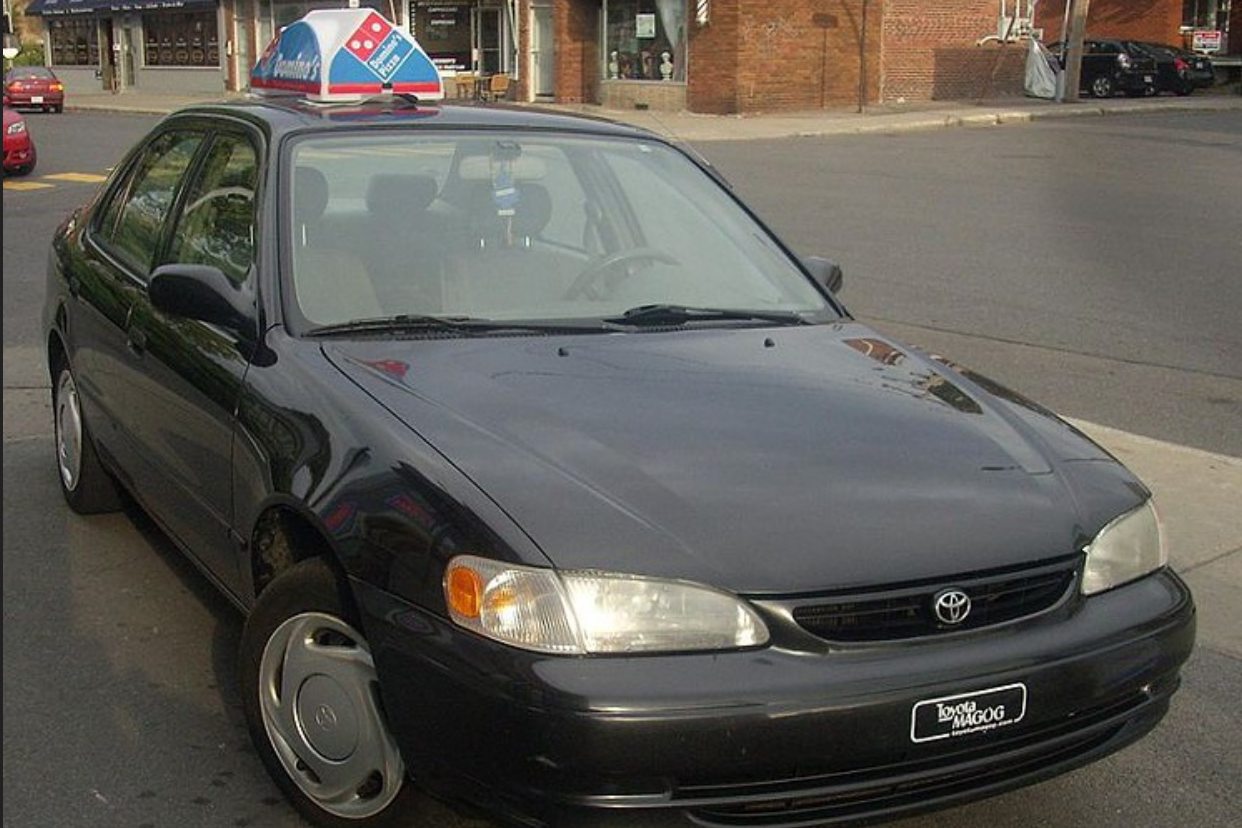 COMMERCE = TRAN$PORT = COMMERCE = TRAN$PORTATION
= BU$INE$$ = TRAFFIC = COMMERCE
COMMERCE = TRAN$PORT = COMMERCE = TRAN$PORTATION
= BU$INE$$ = TRAFFIC = COMMERCE
CODE
OF FEDERAL REGULATIONS
Title 49,
Volume 4, Parts 200 to 399
Revised as of October 1, 1999
Page 859 - 865
TITLE 49 --
TRANSPORTATION
CHAPTER III --
FEDERAL HIGHWAY ADMINISTRATION,
DEPARTMENT OF
TRANSPORTATION
PART 390 --
FEDERAL MOTOR CARRIER SAFETY REGULATIONS; GENERAL
Subpart
A -- General Applicability and Definitions
Sec.
390.5 Definitions.
Driver means
any person who operates any commercial motor vehicle.
Interstate commerce means trade, traffic, or
transportation in the United States--
(1) Between a place in a State and a
place outside
of such State (including a place outside of the United States);
(2) Between two places in a State
through another
State or a place outside of the United States; or
(3) Between two places in a State as
part of trade, traffic, or transportation
Intrastate
commerce means any trade, traffic, or transportation in
any State which is not described in the term ``interstate commerce.''
Motor vehicle
means
any vehicle, machine, tractor, trailer, or semitrailer propelled or
drawn by mechanical power and used upon the highways in the
transportation of passengers or property,
Operator
-- See driver.
One who drives an automobile is an operator within meaning of
the Motor Vehicle Act.
While,
as pointed out in Bosse v. Marye, supra, one may be an operator of an
automobile within the meaning of the Motor Vehicle Act without actually
driving the same, on the other hand, under the definition applying
under the terms of the act, one who actually drives the machine is an
operator. (Sec. 18 of Motor Vehicle Act; Stats. 1923, p. 519.)
HELEN I.
PONTIUS v. G. T. McLAIN et al. (1931), 113 Cal. App. 452,
Civ. No. 350, COURT OF APPEAL OF CALIFORNIA, FOURTH APPELLATE DISTRICT
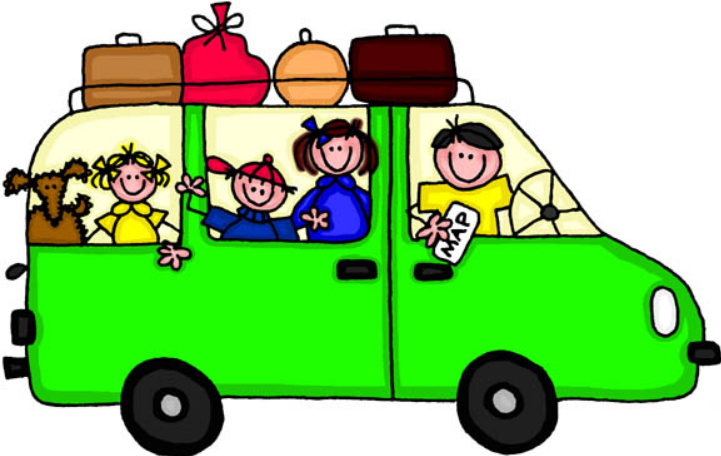
TITLE
18, UNITED STATES
CODE, SEC. 31
PART
I - CRIMES
CHAPTER
2 - AIRCRAFT AND MOTOR VEHICLES
Sec. 31. Definitions
When
used in this chapter the term -
''Motor vehicle''
means
every description of carriage or other contrivance propelled or drawn
by mechanical power and used for commercial purposes on the highways in
the transportation of passengers, passengers and property, or property
or cargo. ''Used for commercial purposes'' means
the
carriage of persons or property for any fare, fee, rate, charge or
other consideration, or directly or indirectly in connection with any
business, or other undertaking intended for profit;
CALIFORNIA VEHICLE
CODE
Section 15210(p)(8):
In the absence of a federal definition, existing definitions under this
code shall apply.
 WEST’S ANNOTATED
COMMERCIAL CODE
© 1990
WEST’S ANNOTATED
COMMERCIAL CODE
© 1990
§9109.
Classification of Goods:“Consumer
goods”; “Equipment”; “Farm Products”;
“Inventory”
Goods are
(1) “Consumer goods” if
they are used or bought for use primarily for personal, family or
household purposes;
(2)
“Equipment” if they are used
or bought for the use primarily in business (including farming or a
profession) or by a debtor who is a nonprofit organization or a
government subdivision or agency or if the goods are not included in
the definitions of inventory, farm products, or consumer goods.
California Code Comment
By
John A. Bohn and Charles J. Williams
Prior
California
Law
1. The classification
of goods in this section is new statutory law. The
significance
of this classification is described in Official Comment 1.
Although goods cannot belong
to more than one category at any time, they may change their
classification depending upon who holds them and for what
reason.
Each classification is mutually exclusive but the four classifications
described are intended to include all goods.
Official Comment 2.
CIVIL
CODE
PART
3. PERSONAL OR MOVABLE PROPERTY
TITLE
1. PERSONAL PROPERTY IN GENERAL
1689.5. As used in Sections 1689.6 to 1689.11,
inclusive, and in Section 1689.14:
(c)
"Goods" means tangible chattels bought for use primarily for personal,
family, or household purposes, including certificates or coupons
exchangeable for these goods, and including goods that, at the time of
the sale or subsequently, are to be so affixed to real property as to
become a part of the real property whether or not severable therefrom,
but does not include any vehicle required to be registered under the
Vehicle Code,
CIVIL
CODE
1791. As used in this chapter:
(a)
"Consumer goods" means any new product or part thereof that is used,
bought, or leased for use primarily for personal, family, or household
purposes, except for clothing and consumables. "Consumer goods" shall
include new and used assistive devices sold at retail.
Code
of Civil Procedure
481.100.
"Equipment" means tangible personal property in the possession of the
defendant and used or bought for use primarily in the defendant's
trade, business, or profession if it is not included in the definitions
of inventory or farm products.

“Automobile
owned by individual not in business is ‘consumer goods’”.
In re Rave,
7 UCC rep. Serv 258.
“An
automobile purchased for personal and family use was ‘consumer
goods’”.
Bank of
Boston v. Jones, 4 UCC Rep. Serv. 1021, 236 A.2d. 484
“The
use of an automobile by its owner for purposes of traveling to and from
his work is a personal, as opposed to a business use as that term is
defined in the California Commercial Code 9109(1), and the automobile
will be classified as ‘consumer goods’ rather than equipment.
The
phraseology of §9102(2) defining goods used or bought for use primarily
in business seems to contemplate a distinction between the collateral
automobile ‘in business’ and the mere use of the collateral automobile
for some commercial, economic or income producing purpose by one not
engaged in ‘business’”.
In re Barnes,
11 USS rep. Serv. 697 (1972)
“So
long as one uses his private property for private purposes
and
does not devote it to the public use, the public has no interest in it
and no voice in its control.
Associated
Pipe v. Railroad Commission, 176 Cal. 518.
“Under
the UCC §9-109 there is a real distinction between goods purchased for
personal use and those purchase for business use. The two are
mutually exclusive and the principal use to which the property is put
should be considered as determinitive”.
James
Talcott, Inc. v. Gee, 5 UCC rep. Serv. 1028, 266
Cal.App.2d. 384, 72 Cal..Reptr. (1968).

“The
use to which an item is put rather than its physical characteristics
determine whether it should be classified as ‘consumer goods’ under UCC
§9-109(1) or ‘equipment’ under UCC §9-109(2)”.
Grimes v.
Massey Ferguson, Inc., 23 UCC Rep. Serv. 655, 355 So. 2d.
338 (Ala., 1978)
“The
classification of goods in UCC §9-109 are mutually
exclusive”.
McFadden v.
Mercantile-Safe Deposit & Trust Co., 8 UCC Rep.
Serv. 766, 260 Md. 601, 273, A.2d. 198 (1971)
“The
term ‘household goods’ includes everything about the house that is
usually held and enjoyed therewith and that tends to the comfort and
accommodation of the household”.
Lawwill v.
Lawwill, 515 P.2d. 900, 903, 21 Ariz.App.75 , 19A Words
and Phrases - Permanent Edition (West) pocket part 94.
“Automobile
purchased for the purpose of transporting buyer to and from his place
of employment was ‘consumer goods’ as defined in UCC §9-109".
Mallicoat v.
Volunteer Finance & Loan Corp., 3 UCC Rep.
Serv. 1035, 415 S.W.2d. 347 (Tenn.App.,
1966)
“A
carriage is peculiarly a family or household article. It
contributes in a large degree to the health, convenience, comfort and
welfare of the householder or of the family”.
Arthur v.
Morgan., 113 U.S. 495, 500, 5 S.Ct. 241, 243 (S.D.Ny 1884)
Personal
liberty, which is guaranteed to every citizen under our constitution
and laws, consists of the right to locomotion, - to go where one
pleases, and when, and to do that which may lead to one's business or
pleasure, only restrained as the rights to others may make it necessary
for the welfare of all other citizens. One may
travel along
the public highways or in public places; and while conducting
themselves in a decent and orderly manner, disturbing no other, and
interfering with the rights of no other citizens, there, they will be
protected under law, not only their persons, but in their safe
conduct. The constitution and the laws are framed for the
public
good, and the protection of all citizens from the highest to the
lowest; and no one may be restrained of his liberty, unless he
transgressed some law. Any law which would place
the
keeping and safe conduct of another in the hands of even a conservator
of the peace, unless for some breach of the peace committed in his
presence, or upon suspicion of felony, would be most oppressive and
unjust, and destroy all rights which our constitution guarantees.
Pinkerton v.
Verberg (1979), 99 S.Ct. 2627
"In
all the states, from the beginning down to the adoption of the Articles
of Confederation, the citizens thereof possessed the fundamental right,
inherent in citizens of all free governments, peacefully to dwell
within the limits of their respective states, to move at will from
place to place therein, and to have free ingress thereto and egress
therefrom with a consequent authority in the states to forbid and
punish violations of this fundamental right."
United States
v. Wheeler (1920) 254 U.S. 281
"It
would be meaningless to describe the right to travel between states as
a fundamental precept of [97 Cal.App.3d 149] personal liberty and not
to acknowledge a correlative constitutional right to travel within a
state."
King v. New
Rochelle Municipal Housing Authority (2d Cir. 1971) 442
F.2d 646
COMMERCIAL USE of the streets and highways is not the
same thing as NON-COMMERCIAL USE of the streets and
highways. There’s
rules that apply to the former that do not apply to the
latter.
One accused of DRIVING without a license
implies the accused was
engaged in COMMERCE at the time the peace officer chose to interfere
with their right to come and go as they please.
 Gee, I wonder where they got the idea for a
license?
Gee, I wonder where they got the idea for a
license?
 You
have my permission.
You
have my permission.
CAROOME.
In English law. A license by the lord mayor of
London to keep a cart.
Black's Law
Dictionary, 1st Ed., p. 174
CARTMEN. Carriers who transport good
and merchandise in carts, usually for short distances, for hire.
Black’s Law Dictionary, 2nd Ed. 1910, p. 173
 That's his DRIVER LICENSE
That's his DRIVER LICENSE
That
guy’s a “boatman” during the reign of Henry the VIII.
That's a
screen shot from the movie “A Man For All Seasons” (1966), which won 6
Oscars, and is the story of Thomas More, who stood up to King Henry
VIII when the King rejected the Roman Catholic Church to obtain a
divorce and remarriage. The boatman got a “fee” for
transporting
passengers along rivers. That round thing on his sleeve is
his PERMIT
to charge a fee and is evidence he’s legitimate.
Thomas More was to
return home and the boatman asked if Thomas More would make it worth
his while. More informed asked the boatman if he
was licensed and
then informed him that the fees were fixed. The
boatman responded he
was licensed and showed the medal on his arm and pointed out whoever
makes the fees or fare doesn't row a boat. The trip
back was an
upstream row and required much more effort. More
offered the boatman
(carrier) a tip if he was able to get him home for
breakfast. The
fact remains, there's an example of someone in the olde days doing what
people do nowadays, carry people and property for money who had to have
a license to do so, the medal on the arm is the evidence of the Crown's
permission to carry customers on the King's river.








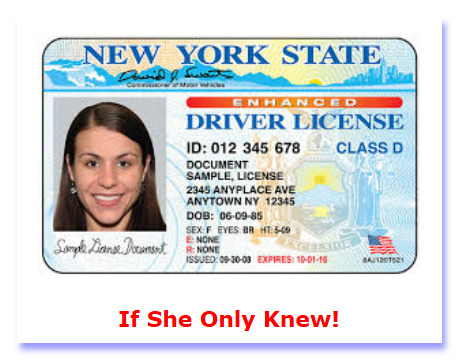




 Driving a
vehicle and being in actual control of a vehicle are not
synonymous.
Driving a
vehicle and being in actual control of a vehicle are not
synonymous. 
 It is settled that the streets of a city belong to
the people of a state and
It is settled that the streets of a city belong to
the people of a state and 
 “So long as one uses his private
property for private purposes and does not devote
“So long as one uses his private
property for private purposes and does not devote




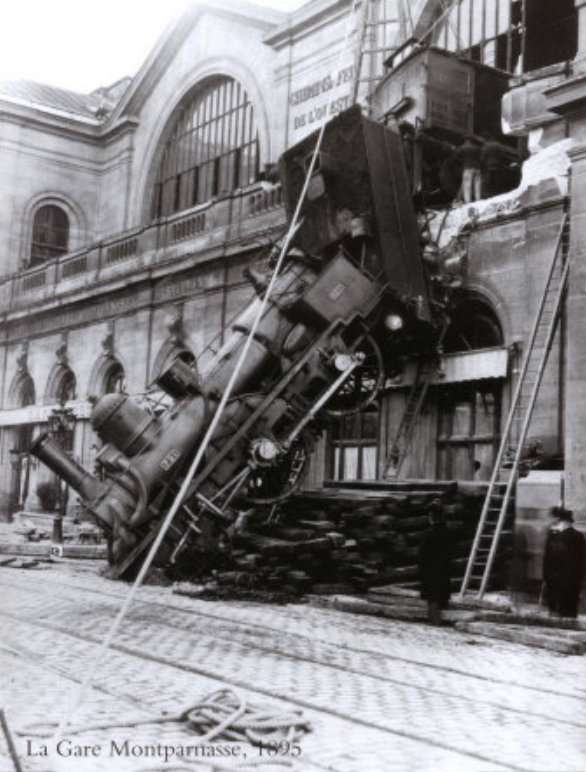
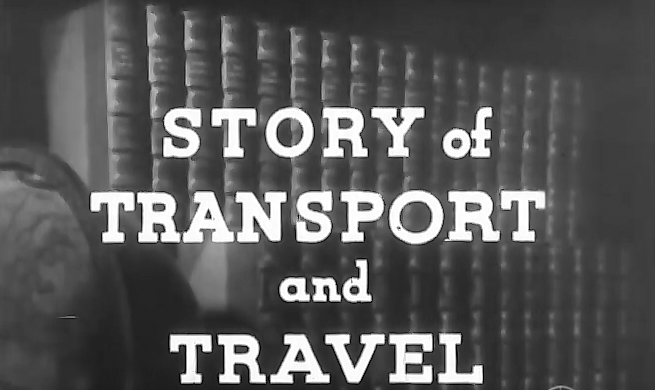














































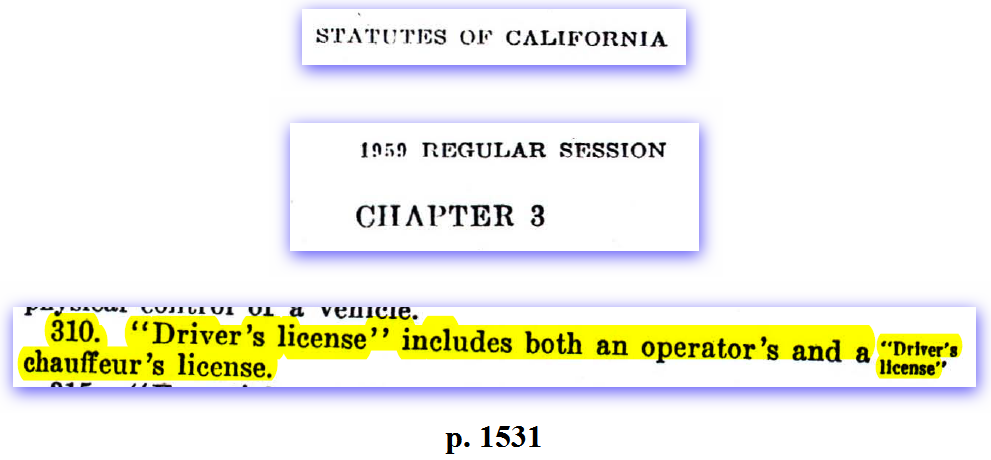



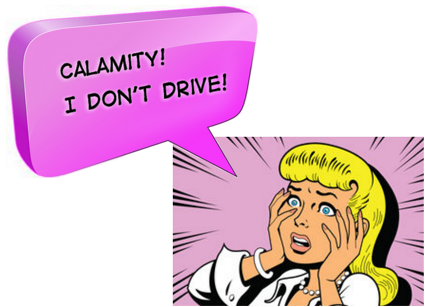






 CONTRACTS -
CONTRACTS - CONTRACTS
CONTRACTS -
CONTRACTS - CONTRACTS 

